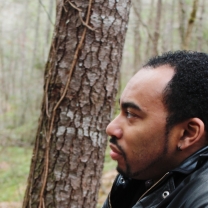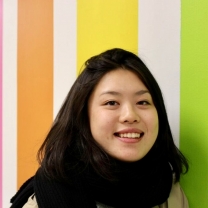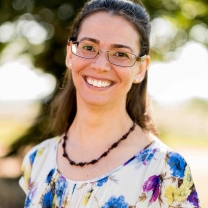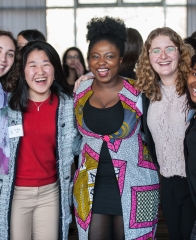 / The Drum
Subscribe
/ The Drum
Subscribe

Sep 5, 2024
This summer, I embarked on what turned out to be one of the best seasons of my life.
When I applied for the McFarquhar grant, I knew I wanted to explore music on the African continent because it is the drum that drives the pulse of the continent. The African continent has faced tyranny, tumult, trials, and tribulations, yet the drumbeat has kept our heartbeat going. Like a heartbeat, the African drumbeat pulses ceaselessly, even when unnoticed. This is what I aimed to document: how we interact with music in our daily lives, both consciously and unconsciously. Bringing these unconscious interactions to the fore was challenging, akin to being asked to always be conscious of every breath I take. Observing how Africans consciously engage with music illuminated its roles in fun, social activism, and nation-building. I got speak to people at Levi’s, Hype Magazine, Essence and other big brands on this project.
I love talking and taking up space, but my project required me to be a fly on the wall, which
was quite arduous. I learned to truly be a chameleon after a lifetime of standing out, ensuring
that the space I observed remained unchanged by my presence. Whether it was listening to
the radio play RnB while my hairstylist tugged on my hair, interviewing one of my favorite
South African celebrities, interning as a junior producer on national television, or witnessing
the hubbub of protests and celebrations, I found that being a chameleon allowed me to
capture the essence of Isgubhu Somphakathi in its truest form. By stepping back and
observing quietly, I could witness the organic interactions between artists and their
communities and the unfiltered conversations about art, identity, and legacy. I discovered
that sometimes the most powerful stories emerge not from actively directing the narrative but
from quietly listening and letting the subjects guide you.
This new approach has significantly contributed to my self-development, teaching me the
importance of humility, patience, and the power of quiet observation. By intentionally
stepping back, I cultivated a deeper empathy and awareness to connect with people. It also
honed my ability to adapt to different environments and situations without imposing my own
perspectives, enhancing my understanding of cultural and artistic expressions. Embracing
this chameleon-like quality has made me more thoughtful and considerate, appreciating
diverse viewpoints and the richness that comes from truly listening to others. These skills
have not only enriched my work on Isgubhu Somphakathi but have also prepared me to
approach future projects with greater sensitivity and insight. This experience has reshaped
my understanding of leadership and influence, showing that sometimes the most impactful
work is done from the periphery, quietly observing and amplifying the voices around you.
During my project, I achieved my initial aims of gaining practical experience and deepening
my understanding of African art and culture, but my goals became more specific as I learned
from each experience. Interning on national television taught me media production's
intricacies and storytelling's power in driving critical conversations. Interviewing celebrities
honed my communication skills and ability to connect with high-profile individuals.
Documenting music broadened my appreciation for African musical heritage, enriching my
storytelling through sound and atmosphere. Adopting a flexible approach proved crucial, as I
realized that adaptability and going with the flow are highly valued across the
continent—something my mom described as "going with the rhythm." This mindset led me to
stay in Kenya longer than planned and attend spontaneous events, which resulted in
meeting influential people and enriching my project with unexpected yet valuable
encounters. Ultimately, while my overarching goals of exploring African art, music, and
cultural narratives remained consistent, they became more refined, focusing on
understanding art's broader impact on society and identity.
Conducting my internship remotely presented both challenges and opportunities. A major
challenge was the lack of in-person interaction, making it difficult to fully immerse myself in
the dynamic environments typical of media and production settings. Being a fly on the wall in
a virtual setting limited my ability to observe subtle interpersonal cues, spontaneous creative
discussions, and the natural flow of collaborative work. This often led to feelings of isolation
and made it harder to stay engaged. Additionally, staying disciplined was a challenge, as
remote work required high self-motivation and time management without the fixed structure
of a physical workspace. However, the remote nature of the internship also allowed me to
connect with people across different locations, broadening my network significantly.
Managing my time effectively enabled me to juggle multiple responsibilities, such as
attending influencer events and conducting interviews, while fulfilling my internship duties.
This experience taught me to be resourceful and self-disciplined, honing skills in digital
communication and remote collaboration valuable in today's interconnected world.
As an intern supervisor, I will prioritize creating a well-defined onboarding process with clear
goals and expectations. I will encourage open communication and regular feedback to
ensure interns feel supported and can address any issues promptly. Providing opportunities
for interns to engage with various aspects of the organization, even remotely, will be crucial
for maintaining motivation and involvement. I will foster a flexible and adaptive work
environment, recognizing that individuals may thrive under different conditions. These
lessons will guide me in creating a more enriching and effective internship experience for
future interns.






